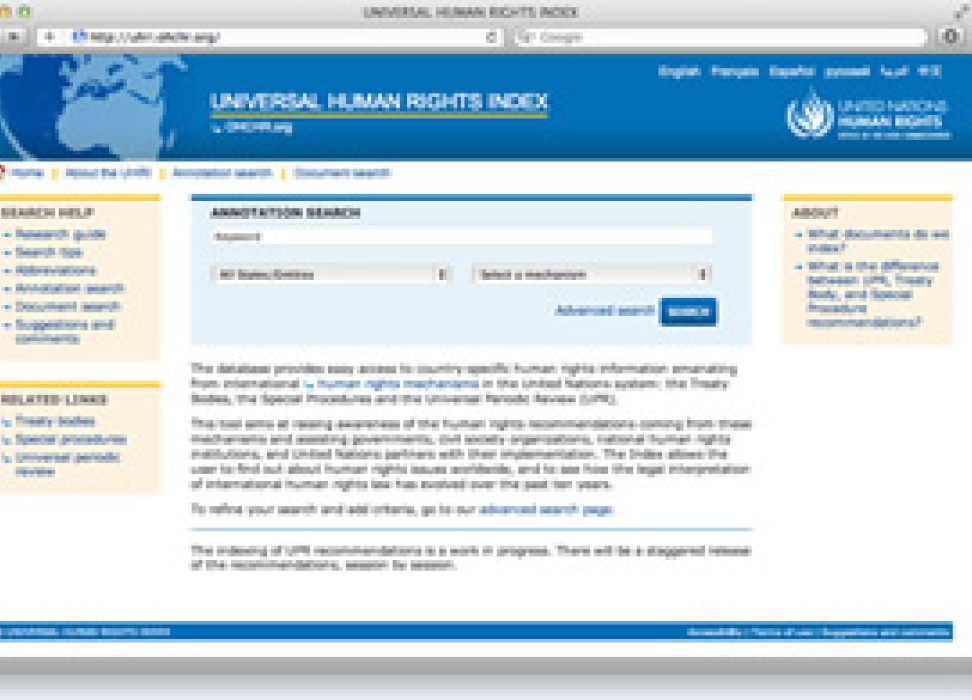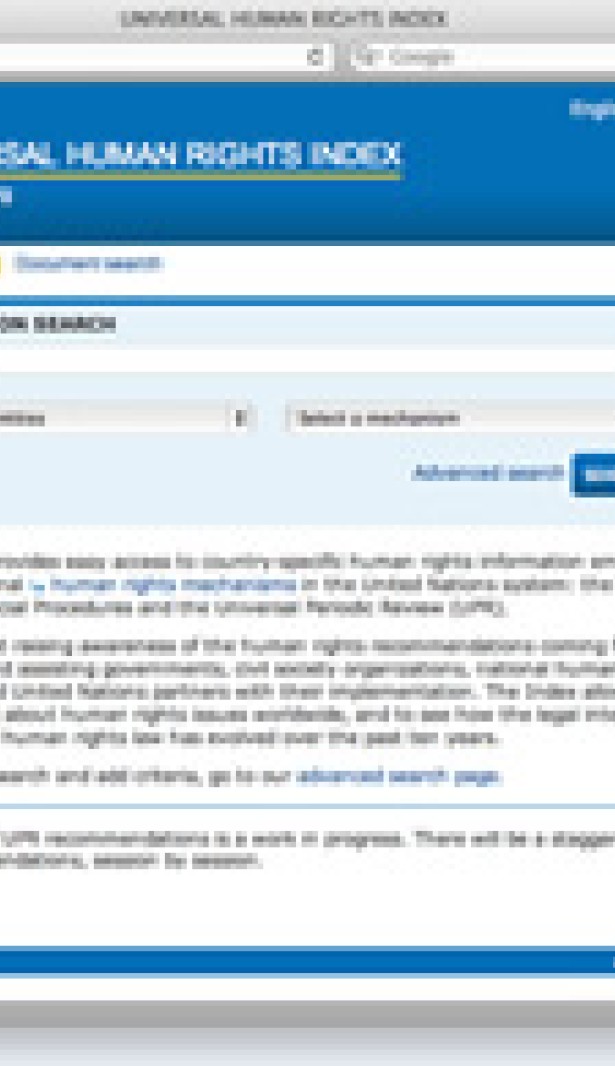A one-of-a-kind UN Human Rights database
23 April 2012

The updated Universal Human Rights Index (UHRI) database is “one of the most important human rights research tools that has been created in the past twenty years,” according to UN High Commissioner for Human Rights Navi Pillay. This comprehensive database is the only online tool, which brings together human rights recommendations from all parts of the UN system.
The Universal Human Rights Index database increases visibility, and offers easier access to recommendations on human rights, both key objectives of the UN Human Rights office, Pillay says. States, international organizations, NGOs, as well as individuals, have improved access to up-to-date human rights efforts worldwide.
At the relaunch celebration in March, 2012, Pillay said, “we have received very enthusiastic comments from States’ representatives, independent experts, civil society organizations, United Nations agencies, and researchers, noting that the amount of time required to undertake research has been dramatically reduced.”
Since December 2010, the Office of the High Commissioner for Human Rights is fully responsible for updating and further developing the Index, which had initially been developed by the Swiss authorities.
The UHRI database carries information dating back to 2000. Following its restructure, almost all of the documents dating from 2011 on are available in all six UN languages, and can be accessed by people with disabilities using technologies like screen readers. Additionally, each document now links to other related information in the database, which makes browsing easier.
A major inclusion in the updated UHRI is the new search function for the Universal Periodic Review (UPR). The UPR is a regular review of the human rights records of all 193 UN Member States. Each State is assessed every four and a half years by a working group, made up of representatives from all 47 member states of the Human Rights Council.
The recommendations from the UPR are available on the database and can now be searched by country, by individual human right, by affected groups of people, and more. This information can then be easily cross-referenced with assessments from other UN bodies, so that users can get a very detailed picture of the human rights situations of all of Member States.
With the second round of the UPR about to commence, the High Commissioner has expressed her hope that the increased transparency and functionality provided by the UHRI database will encourage better prioritization and implementation of recommendations to improve States’ human rights.
23 April 2012

VIEW THIS PAGE IN:
